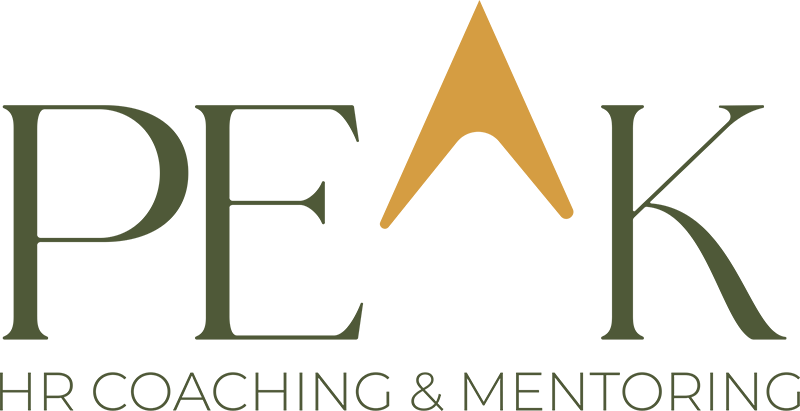Have you ever walked into a meeting with the best intentions, only to realise halfway through that your message isn’t landing the way you hoped? As HR professionals, moments like these are where self-awareness becomes our secret weapon.
We’ve all heard it before: self-awareness is the secret ingredient to success. But here’s the surprising part—research shows that only 10–15% of people are truly self-aware, even though most of us believe we are! (Thanks, Dr. Tasha Eurich, Insight).
For HR professionals, self-awareness isn’t just a nice-to-have—it’s a game-changer. It’s the foundation for making better decisions, building stronger relationships, and leading with confidence. In short, it’s what helps us show up as our most effective selves.
Whether you’re a mid-level HR business partner looking to grow or a seasoned HR leader aiming to sharpen your impact, self-awareness can be the key to navigating workplace challenges with greater ease and clarity.
In this blog, we’ll dive into what self-awareness really means for HR professionals, why it matters so much, and how it can fast-track your personal and professional growth. Ready to explore? Let’s go!
What Does Self-Awareness Mean in HR?
Self-awareness is about truly understanding yourself—your emotions, thoughts, and behaviours—and how they affect the people around you. For HR professionals, it goes a step further, involving an awareness of how your values, biases, and communication style influence your decisions and the relationships you build at work.
Dr. Tasha Eurich Talks About Two Key Types of Self-Awareness:
- Internal Self-Awareness
This is about understanding what makes you tick—your values, strengths, weaknesses, and how you respond to situations. For instance, as an HR business partner, you might recognise that you shine in collaborative settings but find it tough to assert yourself in large meetings. By understanding this, you can work on building confidence in those situations to strengthen your impact. - External Self-Awareness
This is about seeing yourself through the eyes of others, understanding how your words and actions are perceived. Maybe your straightforward approach sometimes comes across as blunt, even when your intentions are good. With this awareness, you can adapt your tone to foster better understanding and connection with your colleagues.
Why Self-Awareness Is Your Superpower in HR
Whether you’re navigating tough decisions, building relationships, or driving engagement, being tuned into yourself can transform how you work and the impact you make. Here’s how:
1. Make Smarter, Fairer Decisions
As an HR professional, your decisions shape careers and can influence the whole organisation. Self-awareness is essential for recognising when personal biases may unknowingly shape your choices. By reflecting on your own values and blind spots, you ensure that your decisions remain aligned with your company’s objectives and values, allowing for more equitable and effective outcomes.
💡 Example: You’re rolling out a new performance management system and notice some departments are resistant. Initially, you think it’s just about adaptability, but upon reflection, you realise the issue lies in the way the change was communicated. By adjusting your approach to include more dialogue and tailored support, you address concerns, foster engagement, and ensure smoother implementation across the organisation.
2. Build Trusting, Meaningful Relationships
To influence and support others, HR practitioners and leaders need strong connections. Self-awareness lets you notice how your tone, body language, or approach might land with someone else, helping you communicate more effectively—especially during tough conversations.
💡 Example: You’re coaching a manager who’s received critical feedback about their leadership style, and their defensiveness is palpable. Instead of pushing forward, you pause to reflect on your approach. Recognising that your tone might feel authoritative, you shift to a calm, empathetic demeanour, asking open-ended questions like, “What’s your perspective on this feedback?” This change fosters trust, encourages honest reflection, and transforms the conversation into a collaborative effort. The manager leaves with greater clarity and actionable insights to grow as a leader.
3. Boost Employee Engagement Like a Pro
As HR professionals, we know that engaged teams are the heartbeat of any successful business. But did you know that self-awareness helps you pick up on what’s really going on? By reflecting on how your own behaviour or style might be impacting others, you can take proactive steps to address concerns and foster a positive work environment.
💡 Example: During a project debrief, you sense hesitation among team members to share challenges they faced. Reflecting on your tendency to focus on outcomes over process, you intentionally create a safe space for open dialogue. This not only surfaces valuable insights but also strengthens trust and fosters a more collaborative environment moving forward.
4. Unlock Your Own Growth
No matter where you are in your HR journey, self-awareness is your launchpad for growth. It helps you identify areas to develop, whether it’s sharpening your leadership style, improving time management, or building emotional intelligence. Regular reflection makes change intentional and impactful.
💡 Example: Ever planned to focus on strategic goals, only to get sidetracked by urgent issues like team conflicts or payroll concerns? Self-awareness helps you recognise patterns, prioritise effectively, and stay focused on what truly drives impact.
The Self-Awareness Challenge in HR
We all know that self-awareness is key to being a great HR practitioner and leader, but let’s be honest—it’s not always easy. Between juggling a packed schedule, managing competing priorities, and navigating complex relationships across the organisation, reflecting on yourself can often take a backseat. Here are a few common challenges HR professionals face when trying to stay self-aware:
-
Pressure and Stress
HR can be fast-paced, and it’s easy to get caught up in the whirlwind of deadlines and urgent issues. With so much to do, it’s hard to carve out time to pause and reflect on how you’re doing or how your actions are landing.
-
Balancing Empathy with Objectivity
As HR professionals, it’s natural to want to be empathetic, but sometimes this can make it difficult to remain objective. When you’re deeply invested in supporting others through challenges, it can cloud your self-awareness and make it hard to step back and view situations from a broader, more balanced perspective. This can lead to emotional decision-making or difficulty in setting clear boundaries.
-
Blind Spots
As you gain experience, you may develop unconscious habits or ways of working that you’re not fully aware of. Whether it’s avoiding tough conversations or sticking to certain types of feedback, these blind spots can hold you back without you even realising it.
Encouragement
The great news is that self-awareness isn’t something you’re just born with—it’s a skill you can grow and strengthen over time. With a little practice, like actively seeking feedback, taking time to reflect on your actions, and staying open to new ways of improving, you can boost your self-awareness and become an even more effective HR professional.
Conclusion
Self-awareness is the key to unlocking your full potential as an HR practitioner. Whether you’re a mid-level HR business partner or a senior HR leader, understanding your own strengths and limitations—and how others perceive you—can make a significant difference in how you navigate workplace challenges and build stronger relationships. From making better decisions to enhancing employee engagement, self-awareness is a vital asset that can help you unlock your full potential as an HR professional.
Curious about how a sharper sense of self-awareness could help you thrive in your role? Let’s explore ways to further enhance your self-awareness! Book your free personalised strategy session today and take the first step toward greater success in HR.
Looking Ahead
In February, we’ll dive into 5 Proven Techniques to Develop Self-Awareness as an HR Professional. Whether you’re just starting to build your self-awareness or looking to sharpen your skills, this blog will give you practical strategies you can start using right away to enhance your impact as an HR professional. Stay tuned!


Leave A Comment